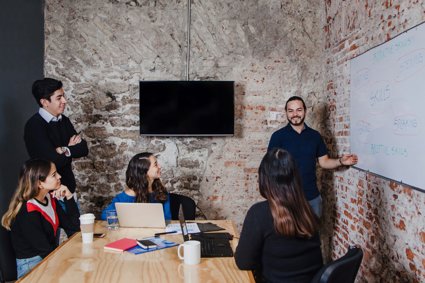
Geography in Life – Teachers’ workshops on geography
"Geography is full of abstract themes and concepts that are based on imagination. I never understood why it was there in our school curriculum." Such comments are common in many parts of India. Interaction with several people has made me realise that geography is not liked by many who studied it in school. Often abstract themes are not adequately explained and therefore students fail to connect the concepts with their practical life. Both originate from the teaching practices. The teachers’ practices are largely linked to the professional readiness of the geography teachers.
In India, a few concepts of geography are introduced as a part of Environmental Studies during primary level (grade 1 to 5), later, during 6th grade, Geography as a school subject with a separate textbook, is offered as a part of social studies curriculum. Geography as a discipline talks about space and it has close connection with both natural science and social science. Therefore, a geography teacher in class must deal with both the concepts of natural science and social science meaningfully in their classes. Geography teaching becomes a challenge when the teacher has an academic training in a different discipline and the teacher hardly has any exposure to geography related concepts beyond their school life.
My research study on geography teaching learning process funded by our university (Azim Premji University, Bengaluru, India) has revealed that many such teachers are teaching geography in schools, and they face challenges in terms of explaining numerous concepts. The challenges are of different types. One set of challenges lie in the fact that many such teachers are not familiar with some geographical concepts. Since they are not clear about the concepts, they can’t explain. On the other hand, there is a challenge in terms of the contextual differences. What is that? A child from southern part of India where floods often occur, may not be able to visualise deserts and similarly a child from desert area may not be able to visualise how a glacier or a flooded area may look like. The same child may enjoy the learning space if she is introduced to such concepts through 3D models. The children may be introduced to such concepts through 3D models, and they can be engaged in making such models to enrich their learning experience further. I organise workshops for geography teachers to help them understand the concepts discussed in school textbooks, and to also introduce them to possible pedagogical approaches so that they can make their classes interesting and engaging with a richer content knowledge.
The main purpose of these workshops is to eliminate boredom of rote learning process in geography. The workshops are often conducted in Geography Lab of our university where handmade low cost and no-cost teaching learning materials are displayed. During these workshops, we demonstrate the effective pedagogical practices using such teaching learning materials which can be easily made with low or even zero expense. I hope to see vibrant classes of geography soon where children learn and internalise geography through sketching, painting, colouring, storytelling, sharing biography and making their own models.
Dr Saswati Paik
Faculty: School of Education, Azim Premji University, Bengaluru